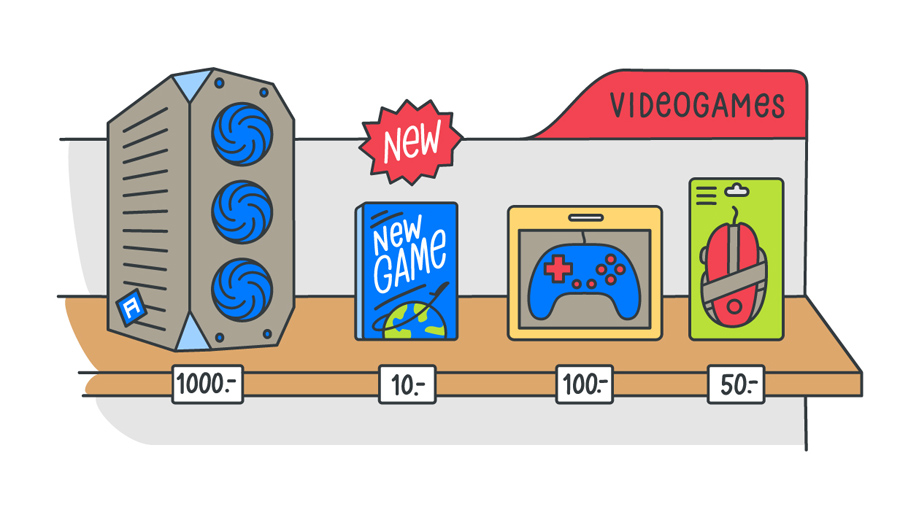
So, the prices of video games. It may seem that there is nothing complicated in this topic, but I am sure that at least half of the people starting their own games in 2019 set the price incorrectly. And the main reason for this is that they underestimate their projects.
Just to make you understand what I'm saying: “underestimate the game” means asking for enough money for it at the start of sales. (And also, giving too much a discount too quickly, but we'll talk about this another time.)
In my opinion, with some notable exceptions, which I will discuss later, the game should cost at least $ 20 (18 euros) - and the corresponding reasonable amount in local currencies, logically decreasing to about one third for the Chinese version (
example - Descenders ) . The price should be set tactically, and taking into account regional markets.
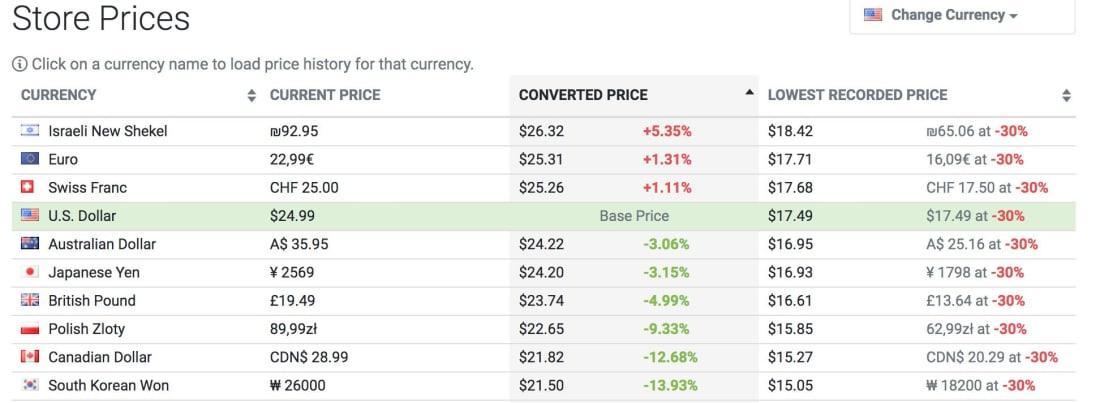 Translated to Alconost
Translated to AlconostGenerally speaking, developers underestimate their games mainly for four reasons.
1. It seems to you that the game “does not deserve” a higher price
This happens surprisingly often, and I understand why: it seems to you that if the game was made by you, even a small team, then it is not worth the high price, or that there are better games with more functionality - which are sold more expensive. (Or maybe everyone else is underestimating the price, and you just follow this example.)
But all this reasoning does not make sense: if you agree with the
hypothesis of “1000 real fans” , then you understand that fans can pay any price at the start. Such people, obviously, still need to be found - they themselves will not appear. However, these buyers will be less picky about the price.
Therefore, instead of - consciously or unconsciously - reasoning “I will put the price lower because I don’t have confidence in the game”, simply pretend that any games should be sold for $ 20 at the start, and build on this.
This adds confusion and an idea of why people buy games. In my opinion, usually a person buys a game because he saw a trailer or streamer clip, talked in Discord, or someone recommended it on a social network or personally - that is, the game satisfies a conscious need.
Such a person, it seems to me, is unlikely to think: “Wow! The game looks decent, and I take the price of 8, not 12 dollars! ”I do not think that price is always a decisive factor. (But if someone can afford to buy only a couple of games for $ 8 per month, the price will definitely play a significant role. Well ... there are sales for that!)
Of course, the higher the price, the more often you can hear that the price tag for the game is too high. This is especially true for AAA games that sell for $ 60 at launch: they are compared to fairly well-developed games for $ 30. But in the price range from $ 20 to $ 25 for a game of a decent scale, such a price is quite fair.
On the issue of price maneuvering, it should be noted the danger of falling into an intermediate price point, which seems safer - $ 14.99 in the case of the United States. An example is
Dicey Dungeons : a great fresh game, but it seems to me that they could easily borrow $ 19.99 for it. (And in their case, this is probably unimportant, because the number of copies sold makes up for the difference!)
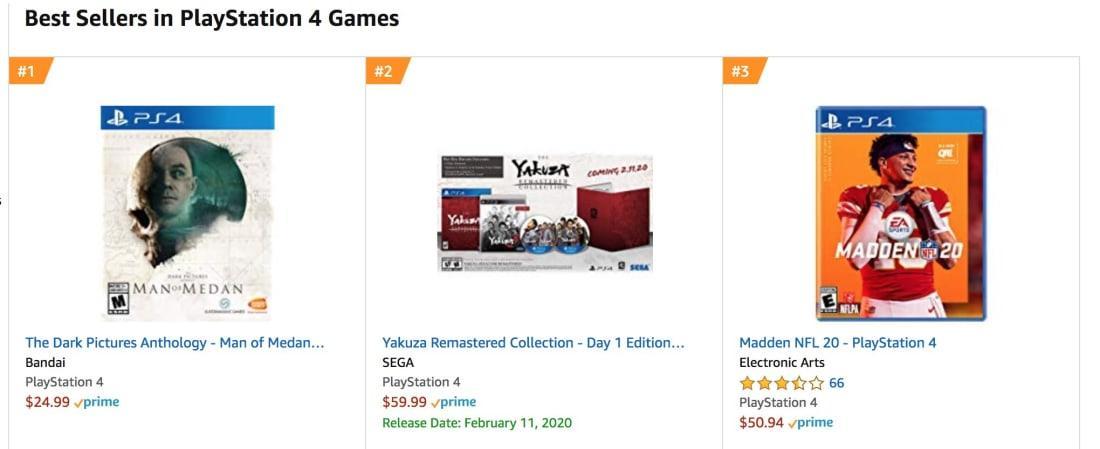
2. Do you think that a game with a lower initial price will sell a large number of copies
I often hear such reasoning, and I do not quite agree with them. If you estimate how many copies of the game you will need to sell at a lower price in order to get the same profit, the result will not please. Do you think you can sell twice as many copies in the first 3–6 months if you ask for 10, not 20 dollars? (Hint: it doesn’t work.)
However, if you start with a higher price (for example, $ 20-25), you can make a 50% discount and get $ 12.50 per copy. But discounts of 15-20% will also work well: they will attract the attention of many people who did not dare to buy the game earlier - so do not rush to generous sales.
And in any case, you can attract much more attention among games at discounts. This is true in the case of Steam with wish lists, and in the case of Switch (as well as PS4 and Xbox) with their attractive sales. (Do not forget that a large part of Steam users will receive a notification in their mail if a game from the wish list is sold at a discount - a good opportunity.)
So yes: if a person is at least a bit interested in the game and sees a discount, he may well decide to buy (who would have thought). This impulsive decision or just the habit of buying on sales does not matter: your goal is to earn more at this moment. Therefore, the initial price should be raised higher - so I think.
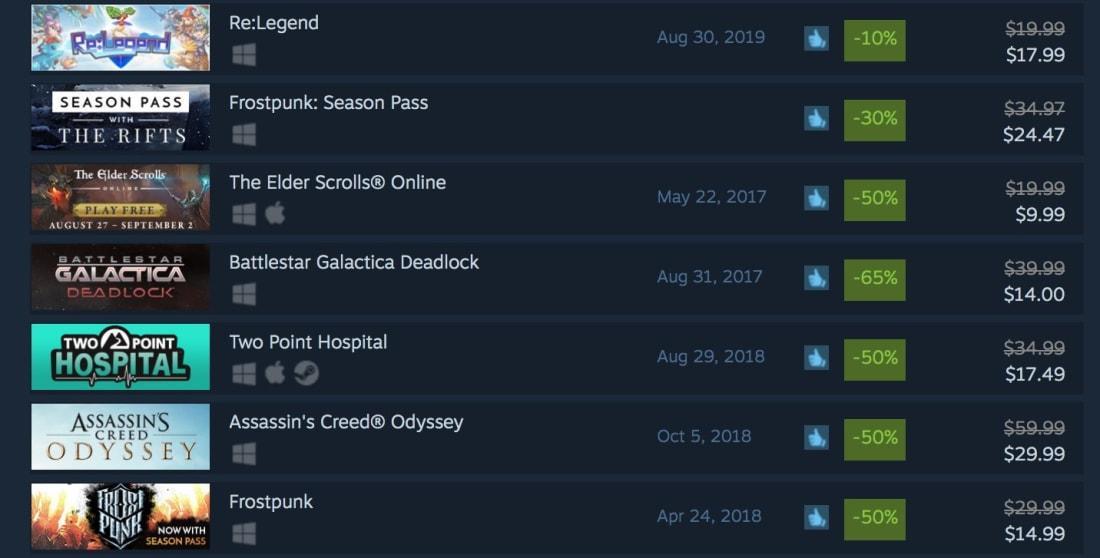
3. There is a strange implied connection between price and quality
It seems to me that sometimes games are sold cheaply, because it seems to developers that it stimulates demand. But the reverse may also be true: for example, luxury goods. What is their “true value" compared to the price being quoted?
I do not propose selling games at the prices of Chanel handbags, but it is obvious that it is psychologically difficult for developers to set a higher price. At the same time, it’s funny that taking a little more for the game will help to emphasize that you believe in it.
You essentially say: “Buy the game: it's cool, so the high price is justified.” And if someone has already spent a little more money on the game, I think he is more likely to play and try to understand it.
Imagine a game almost by accident bought with a 80% discount - and compare it with a game for which you immediately paid $ 25: last you will probably try to spend more time. (Of course, in the end it may turn out that you will spend days playing
Peggle 2 purchased at the sale - just like me!)
It is clear that if the game will cost more, it will not magically become better from this. But I don’t think it makes sense to lower the regular price of the game in the store - however, you must definitely participate in sales. It should be remembered that as you add a sufficient number of new elements to the game, the price for it can be increased even after launch.
4. Being geographically at one point, you will not get a good idea of prices in the world
This item is already more complicated: prices across regions vary widely, and games can be developed from almost anywhere in the world. As a result, a distorted idea of a “fair” price in different parts of the world can be created.
The only unconditional point for me is a change of point of view on prices depending on the country where you are located. For example, I recently talked with a developer from a country with a low level of GDP, and for him the idea of taking $ 20-25 per game seemed a little ridiculous.
(Partly because he was not sure that the game was long enough and complicated, but it was also influenced by the fact that in local currency such a price seemed very high.)
I think this is a very important point that works in both directions. If you are in a country with high GDP (for example, in the USA), you should very carefully set regional prices for countries such as Russia and China.
And if you are in a country with low GDP, remember that the price of AAA-games in the USA is $ 60, and in Europe it reaches 70 and even 80 euros! I know that now there are much fewer such games, but even $ 20 in comparison with such prices looks very good.
(Of course, compared to the Humble Monthly business model, “a lot of games for $ 12” is not a very attractive price, but let's do our best to move away from the concept of overvaluing games.)
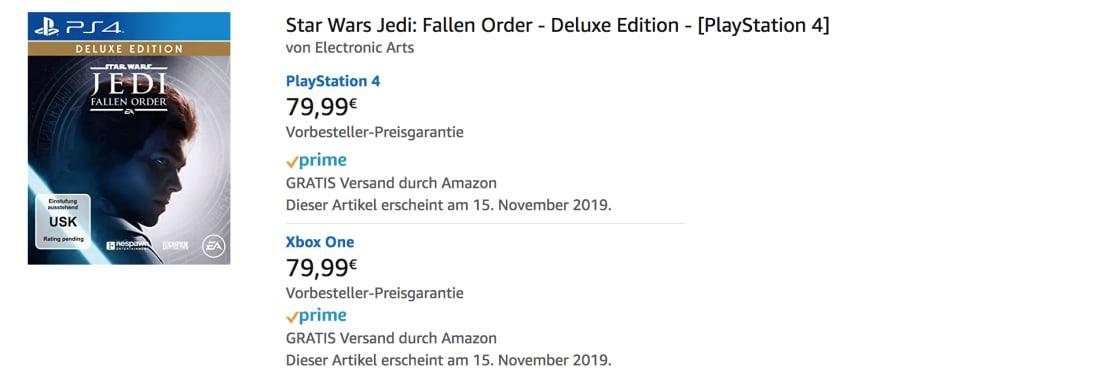
And finally, in what cases should a game not cost $ 20-25? In my opinion, these should be short or very short games, certain genres that do not correlate well with high prices (for example, two-dimensional puzzles), as well as games with an emphasis on microtransactions and DLCs (often multi-player), in which first and foremost important user base.
If your game is a hobby, and making money is not a priority, it may be worth lowering the price for it and see what happens. I saw a couple of good hobby projects that “took off” in the Steam store this way.
At the same time, I see that very few games for $ 5 show good sales on PCs and consoles - perhaps because of the low quality implied by such a price. Or maybe because only the simplest and most uninteresting games are served at $ 5? Price, quality and sales can depend on each other in a very confusing way!
About the translatorThe article was translated by Alconost.
Alconost
localizes games ,
applications and sites in 70 languages. Native translators, linguistic testing, cloud platform with API, continuous localization, project managers 24/7, any format of string resources.
We also make
advertising and educational videos - for sites that sell, image, advertising, educational, teasers, expliner, trailers for Google Play and the App Store.
→
Read more